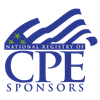
Fraud in the Customer Journey

The Fraud in the Customer Journey course is a self-paced, entry-level course covering the various types of fraud that can occur at any point in the customer journey. You will explore key concepts of fraud attacks, including the digital attack lifecycle, techniques used by fraudsters to exploit online platforms, and the methods of data theft through websites and apps.
MRC Members: USD $75 (plus applicable taxes)
Non-members: USD $150 (plus applicable taxes)
In this course you'll learn to identify and describe these fraudulent activities and understand their negative implications for businesses. By the end of the course, you'll be equipped with effective strategies and techniques to prevent and combat online fraud, enhancing the security of your eCommerce operations.
FAQs
-
- eCommerce payment managers seeking to enhance their understanding of payments orchestration.
- Fraud prevention specialists who need to understand how payments orchestration can impact fraud management
- eCommerce business owners and managers looking to optimize their payment systems for efficiency and cost-effectiveness.
- Customer experience managers looking to optimize the customer experience through streamlined and efficient payment processes.
- The course may also benefit financial analysts, IT and technical professionals, compliance officers, and strategic planners and consultants in online retail.
- eCommerce payment managers seeking to enhance their understanding of payments orchestration.
- Fraud prevention specialists who need to understand how payments orchestration can impact fraud management
- eCommerce business owners and managers looking to optimize their payment systems for efficiency and cost-effectiveness.
- Customer experience managers looking to optimize the customer experience through streamlined and efficient payment processes.
- The course may also benefit financial analysts, IT and technical professionals, compliance officers, and strategic planners and consultants in online retail.
-
- Program Level: Basic
- Program Field of Study: Specialized Knowledge
- Program Delivery Method: QAS Self Study
- CPE Credits: 1.0
- Advanced Preparation and/or Pre-requisites: None
Please allow approx. 1 hour to complete this course. The course culminates with a comprehensive final assessment to evaluate the user's comprehension of the material. Upon successfully completing the final assessment, participants will be awarded a certificate of completion and CPE credits representing their proficiency in the subject matter.
- Program Level: Basic
- Program Field of Study: Specialized Knowledge
- Program Delivery Method: QAS Self Study
- CPE Credits: 1.0
- Advanced Preparation and/or Pre-requisites: None
Please allow approx. 1 hour to complete this course. The course culminates with a comprehensive final assessment to evaluate the user's comprehension of the material. Upon successfully completing the final assessment, participants will be awarded a certificate of completion and CPE credits representing their proficiency in the subject matter.
-
- Define payments orchestration
- List key challenges that payments orchestration aims to solve
- Outline how payments orchestration works
- Identify and describe the components of payments orchestration
- Identify the key benefits of payments orchestration for merchants
- Describe payment and fraud management costs
- Identify initiatives that drive more efficient cost ownership
- Outline key considerations for merchants looking to partner with a payments orchestration provider
- Define payments orchestration
- List key challenges that payments orchestration aims to solve
- Outline how payments orchestration works
- Identify and describe the components of payments orchestration
- Identify the key benefits of payments orchestration for merchants
- Describe payment and fraud management costs
- Identify initiatives that drive more efficient cost ownership
- Outline key considerations for merchants looking to partner with a payments orchestration provider
-
- MRC Members: USD $75 (plus applicable taxes)
- Non-members: USD $150 (plus applicable taxes)
MRC Education Accreditation

MRC Education Refund Policy